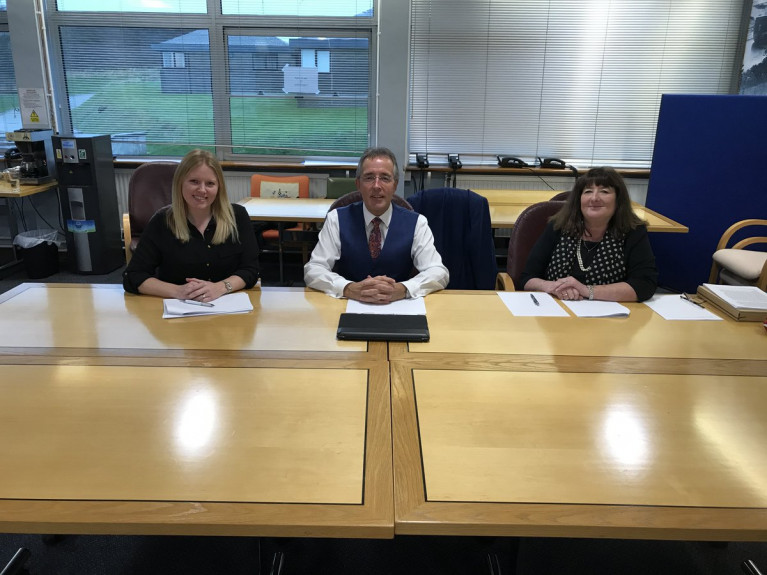Displaying items by tag: 5th Place Added
University students totalling five from Pembrokeshire, Wales, are to receive scholarships from the Port of Milford Haven – one more than usual – as the standard proved to be exceptionally high this year.
The south Wales port has awarded scholarships on an annual basis consisting of a financial award of £1,500, plus a three-week work placement during the summer. The panel felt that the shortlisted candidates had so much to offer that they would provide an additional award as the winners were so deserving.
The successful students are Amelia Davies from Burton who is studying Business Management at Cardiff University; Fred Smith from Manorbier who is at the University of Bristol studying Politics and Philosophy; Grace Gibbon of Haverfordwest who is at Harper Adams University in Shropshire on a Rural Enterprise and Land Management course; Megan Matthews from Pembroke who is studying Engineering Science at the University of Oxford and Sophie Rees from Liddeston who is on a Gateway to Veterinary Medicine course at The Royal Veterinary College.
Chairing the scholarship panel was the Port of Milford Haven’s Chairman Chris Martin, accompanied by Maxine Thomas, Designated Senior Lead for Safeguarding and Learner Wellbeing at Pembrokeshire College, and Sara Aicken, PR and Communications Executive at the Port.
Chris was extremely impressed with the standard of entries to the scheme this year, commenting “We usually award four scholarships but this time the competition was so strong we decided to bend the rules and award five! The winners are studying a variety of courses across a range of subjects all over the country, but all spent the majority of their education in Pembrokeshire, so we’re thrilled to be able to support local talent. The financial award is of course beneficial to them, but the summer placement is where the real value lies as it gives them a flavour of what it’s like to work in a busy, professional environment.”
The 2020/21 scholarship scheme will open for entries in the autumn.





























































